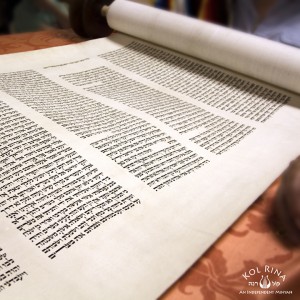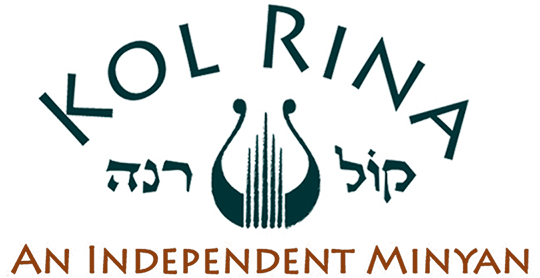Introduction to the Haftarah—Rosh Hashanna
Treasure Cohen—Sept. 5, 2013/ 5774
Shana Tova! Today is a powerful day in our Jewish holiday cycle– the birth of a new year for our people and an opportunity for re-birth in our personal lives. So it is not surprising that both the Torah and the Haftarah tell stories about birth– The birth of Isaac, Abraham and Sarah’s son in the Torah reading, and the birth of the prophet Samuel in the Haftarah. And we are reminded that neither birth comes easy: both stories contain elements of pain and longing, loss and sacrifice, and yet open up new beginnings in the life of our people.
 Like the Torah reading, our haftarah–which takes place almost 600 years later– begins with a family story: This man Elkanah has two wives, Peninah who has many children, and Hannah–his favorite– who is childless. Hannah is deeply despondent. Her sister-wife taunts her that God has closed up her womb, and her husband cannot comprehend her pain: “Why are you so sad? Am I not more devoted to you then ten sons?”
Like the Torah reading, our haftarah–which takes place almost 600 years later– begins with a family story: This man Elkanah has two wives, Peninah who has many children, and Hannah–his favorite– who is childless. Hannah is deeply despondent. Her sister-wife taunts her that God has closed up her womb, and her husband cannot comprehend her pain: “Why are you so sad? Am I not more devoted to you then ten sons?”
When the family makes their yearly sacrificial pilgrimage to Shiloh, a depressed and distraught Hannah visits the Temple alone and unburdens herself to God, weeping as she prays– ” Adonai Tzevaot, if You will look upon the suffering of your maidservant and remember me, and if you grant your maidservant a male child, I will dedicate him To Adonai all of the days of his life . . .”
The priest Eli watches her but cannot understand why her lips are moving and no sound is coming out of her mouth. He assumes she is a drunk, and reprimands her. Her response: “On no, my lord. I am a very unhappy woman. I have drunk no wine but I have been pouring out my heart to Adonai. Do not take me for a worthless woman; I have only been speaking all this time out of my great anguish and distress.” Eli recognizes her sincere devotion, blesses her, and she leaves–now able to eat, no longer depressed, and within the year, her prayers are answered and she gives birth to a son Samuel, meaning, “I asked Adonai for him.”
And based on this poignant scene, the Rabbis have credited Hannah with introducing a model of personal or private prayer.
As you are well familiar-as you balance this heavy High Holiday prayer book in your hands, we have inherited a substantial legacy of prayers that resonate through their beautiful melodies and powerful poetry. Sometimes these words touch our hearts deeply and enable us to pray with a single-minded devotion. And when we join our voices with others, we gain strength from the power of praying with our community.
But sometimes they don’t. Sometimes the prescribed liturgy even creates barriers to prayer–if we cannot understand the language or are unable to find a personal connection to the words. And sometimes we are so overwrought with our own feelings and cares, that we have a compelling need to share with God the raw emotions and passionate voices that cry out from within us—like Hannah.
Our Jewish tradition embraces both public and private prayer. We pray together and we pray alone. We are guided by the set words in our prayer books, and we compose our own spontaneous prayers that can change for every occasion, mood, and need. Even this Haftarah contains examples of both: Hannah’ s powerful but silent outpouring to God at the beginning, and the ten formulaic verses of praise and thanks to God at the end, prefaced by the words, “And Hannah prayed.”
We will be spending a lot of time praying during this High Holiday season. We will have many opportunities to turn the pages of this book and say the words that have echoed throughout the generations as together we inaugurate the Jewish new year. But this is also a time of intense soul-searching in which each of us strives for internal change with prayers that are private and personal. Inspired by Hannah, may the power of our prayers, whether the ones in the book or the ones in our heart, draw us closer to God’s holiness and to our own, as we seek change and growth, renewal and rebirth in the coming year.

